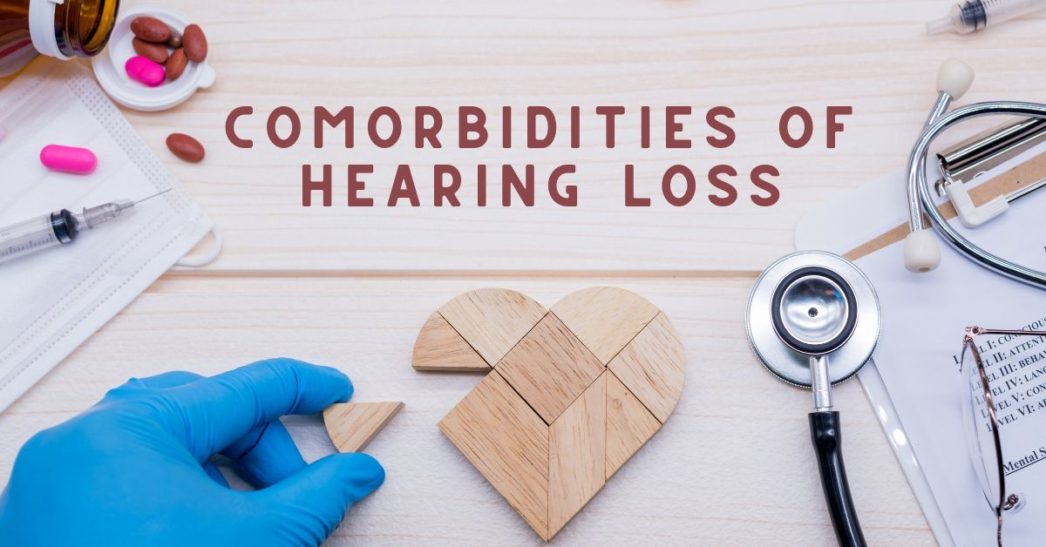It can be disastrous when hearing loss begins to emerge. It ever alters the way someone interacts with the environment around them. Hearing loss may also often be a manifestation or result of other, more severe health problems referred to as comorbidities.
Comorbidities is a medical term for one or more illnesses or circumstances occurring concurrently in the same individual. They vary from physical illnesses to mental illnesses and are often the first indication of other possible health problems.
Here are some of the most common comorbidities of hearing loss.
Cardiovascular disease
Strokes, heart attacks and heart disease can all result from bad heart health. Blood vessel injury to the inside ear is a primary sign of cardiovascular disease. This trauma damages your sensitive hearing nerves, resulting in hearing loss.
Your heart has the job of pumping blood around your body, which brings oxygen and nutrients to the rest of your body. The heart must work harder to achieve this when there is a plaque build-up in the arteries due to cardiovascular disease.
As a consequence, your inner ear doesn’t get the regular flow of blood it needs to function properly. These fragile nerves and cells can get damaged or demolished and result in a permanent loss of hearing, without healthy blood flow to supply the necessary oxygen.
Social isolation and loneliness
Social isolation is also an increasing problem, a consequence of which is, according to the former Surgeon General of the United States, a “reduction in lifespan similar to that caused by smoking 15 cigarettes a day.” Often individuals avoid social situations with friends, family and co-workers and instead opt to retreat and isolate themselves when listening becomes difficult.
Depression
If you lose your ability to enjoy all those sounds you enjoy such as music, nature and the voices of your friends, it’s possible you will go through anxiety, stress and sadness.
As far as anxiety and stress are concerned, they themselves can become diseases. Not being able to understand others can lead to a reduced enjoyment in social and work scenarios. For so many reasons, it is not healthy to live in a constant state of sadness, anxiety and/or stress, and individuals can easily slip into depression.
Dementia
Recently, there has been a considerable amount of research on hearing loss and its association with dementia. As mentioned previously, hearing loss affects our communication negatively and leads to a gradual retreat from social activities. The loss of social interaction creates the ideal conditions for cognitive decline and dementia to flourish.
In 2011, Frank Lin, the Director at the Cochlear Center for Hearing and Public Health at Johns Hopkins Bloomberg School of Public Health, released one of the most prominent studies connecting dementia with hearing loss. Over a span of 12 years more than 600 people without dementia participated in his research.
His results showed that the risk of dementia for the patients with mild hearing loss was nearly double, it was triple for the patients with moderate hearing loss, and five-fold for those with severe hearing loss. Dr. Lin and his colleagues concluded that there was an important correlation between hearing loss and dementia.
Links to Falls
The main cause of injuries are falls among elderly people, and these can lead to severe medical, social and financial consequences. Falling among the elderly is often deadly. Research that analyzed falls connected with hearing loss discovered that those with hearing loss were 1.4 times more likely to fall, and that grew with the severity of the hearing loss.
Hearing loss is connected with falling because studies demonstrate that the brain tries to offset hearing loss by working harder to treat noise. The leaves fewer cognitive resources to focus on balance and spatial awareness, increasing the risk of falls drastically.
Comprehensive Ear and Hearing
There are so many risks associated with hearing loss, it makes sense for you to treat it as soon as possible. Why not schedule a hearing test with us? We’re on hand to help you continue living the life you want. Contact us today!


